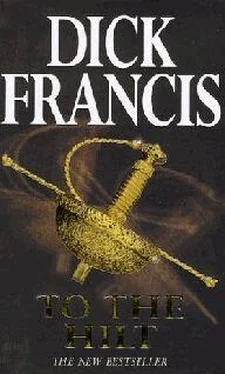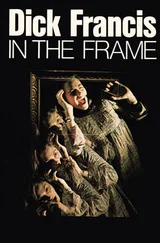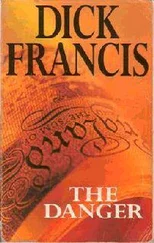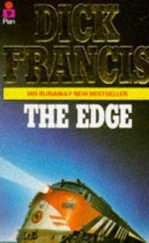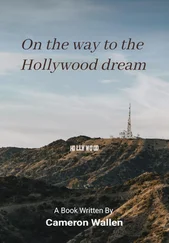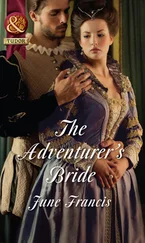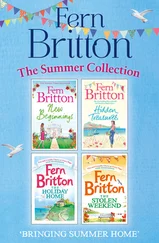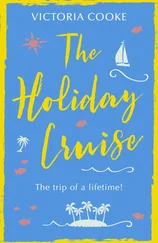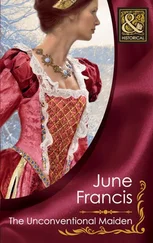by Francis - TO THE HILT
Здесь есть возможность читать онлайн «by Francis - TO THE HILT» весь текст электронной книги совершенно бесплатно (целиком полную версию без сокращений). В некоторых случаях можно слушать аудио, скачать через торрент в формате fb2 и присутствует краткое содержание. Жанр: на английском языке. Описание произведения, (предисловие) а так же отзывы посетителей доступны на портале библиотеки ЛибКат.
- Название:TO THE HILT
- Автор:
- Жанр:
- Год:неизвестен
- ISBN:нет данных
- Рейтинг книги:5 / 5. Голосов: 1
-
Избранное:Добавить в избранное
- Отзывы:
-
Ваша оценка:
- 100
- 1
- 2
- 3
- 4
- 5
TO THE HILT: краткое содержание, описание и аннотация
Предлагаем к чтению аннотацию, описание, краткое содержание или предисловие (зависит от того, что написал сам автор книги «TO THE HILT»). Если вы не нашли необходимую информацию о книге — напишите в комментариях, мы постараемся отыскать её.
TO THE HILT — читать онлайн бесплатно полную книгу (весь текст) целиком
Ниже представлен текст книги, разбитый по страницам. Система сохранения места последней прочитанной страницы, позволяет с удобством читать онлайн бесплатно книгу «TO THE HILT», без необходимости каждый раз заново искать на чём Вы остановились. Поставьте закладку, и сможете в любой момент перейти на страницу, на которой закончили чтение.
Интервал:
Закладка:
He said thoughtfully, 'James will not have to pay crippling death duties on the castle, as I did. It was my greatest reason for handing it over.'
'One is taxed for giving a big present to one's son,' I smiled, 'but not for losing the same amount at the casino. Nor for winning. Screwy. But that's spite and envy for you. All feeling and no addition.'
'What brought all this on?'
'Thinking about the hilt.'
'Do you seriously think we should surrender it?'
'No,' I said, 'but arithmetic might cool Dr Lang's ardour.'
'I'll try it.' He lavishly poured more gold into my glass. 'By God, Al.'
'If you get me drunk,' I said, 'James will beat me at golf.'
James beat me at golf.
'Whatever did you say to Himself?' he asked. 'Nothing but catching a twenty-pound salmon puts him into such a high mood.'
'He's good to me.'
'The sun shines out of your arse.'
The difference between James and Patsy was that my cousin felt secure enough to make a joke of his father's occasional glance in my direction. James would inherit his title and an entailed estate. He had none of Patsy's devilish doubts sitting bleakly on his sunny shoulders.
As always we went amicably round eighteen holes, laughing, cursing, helplessly incompetent, racking up scores we would never confess to, happy in each other's undemanding company, cousins in the simplest sense, family attitudes and loyalties taken for granted.
We pulled our golf bags along behind us on their little trolleys, and if I were careful replacing my clubs each time, sliding them gently into the bag instead of ramming them home, it was because the handles rested not on the firm base of the bag but in the wide bowl of the grey cloth-wrapped shape within it, the jewelled gold treasure fashioned by Maxim in 1867.
We finished our round lightheartedly, and in the club house I wiped clean my woods and irons and stowed them upright in the bag in the locker, sentinels guarding King Alfred's Gold Cup.
Owing to the rigid divisions at the top of the golf bags, which held the clubs apart to prevent their damaging each other, I had had to buy a bag that could be taken apart at the bottom - for cleaning - and in the castle's drying-room I had undone the necessary screws to take the bag apart, and had lodged the Cup inside. It fitted there snugly: and as a bonus for having to undo the bag to get it out again, it could never be tipped out by accident.
The locker's flat grey doors were uniform and anonymous. Changing my shoes, I put the black-and-white studs on the shelf and closed everything unremarkably away, and with amusement returned with James to the castle.
By mid-morning the next day my life in the bothy had taken shape again, and in greater comfort than before when it came to mattress and armchair. A hired jeep stood outside my front door, the portable phone (with spare batteries) was working, and Zoл Lang's portrait stood unwrapped on the easel.
With a thankful feeling of coming home I set out the paints I needed, feeling their texture on knife and brush, darkening the background again, adding the shadows that had flashed into imagination in my travels, putting a glow on the skin and life-lights in the water-like surfaces of the eyes.
The woman lived on the canvas, as vital as I knew how to make her.
At five o'clock, when the quality of the light subtly changed, I put down the brushes, washed them for the last time that day and made sure that all the brilliant colours were airtight in their pots and tubes, a routine as natural as breathing. Then I lit my lamp and put it by the window, and took my bagpipes out of their case, and walked with them up the rocky hillside until the bothy lay far below.
It was weeks since I'd played the pipes. My fingers were rusty on the chanter. I filled the bag with air and tuned the drones, swinging them along my shoulder and waiting for such skill as I had to reawaken in my ear; and at length began to feel and to remember the fingering of one of the long ancient laments of a time earlier than Prince Charles Edward. The sadness that had enveloped Scotland for centuries before him, the untamable independence that no Act of Union could undo, all the dark Celtic mysteries pulsed in the old elemental endlessly recurring tunes that slowly wove a mood more of endurance than hope.
I had learned to play laments - the pibrochs - as a boy, chiefly for the unromantic reason that their slowness meant I had more time to get the notes right. I'd progressed to marches later, but a lament suited my painting of Zoл Lang better, and I stood on the Monadhliath Mountains while the moon rose, and played for her a mixture of an old tune called 'The King's Taxes' and a new one that I made up as I went along. And it was just as well, I thought, as stray squeaks and wrong notes made me wince, that my old army teacher wasn't there to hear.
Scottish piping laments could go on for hours, but earthly hunger put a stop to them usually in my case, and I returned in the dark to the bothy, filled with a pleasant melancholy but with no feeling of despair, and cooked paella in contentment.
I always woke early in the mountains, even in the dark winters, and the next day I sat in front of the easel watching the slow change of light on that face; the growth, as it almost seemed, of the emerging personality taking place before me; and I wondered if anyone would ever again see that gradual birth. If the picture were successful, if it ever hung in a gallery, passing visitors might give it a glance under a bright light and view it as a conjuring trick: now you see youth, now you don't.
When daylight was fully established I still sat comfortably in my new armchair, trying to tap into that courage I was supposed to have. It was one thing to imagine, another to do . And if I didn't do, I would know for ever that I'd failed in courage, even though, as it now stood, the portrait of an unknown woman was complete and workmanlike.
I had ransacked my mother's kitchen for a sharp-pointed knife, and in the end I'd borrowed from her not a knife but a meat thermometer. This unlikely tool had proved to have a spike whose tip was both sharp and abrasive. The spike was for sticking into joints of meat: the round dial from which it protruded measured the inner heat and the state of cooking - rare, medium, well done.
'Of course you can borrow it,' my mother said, puzzled, 'but whatever for?'
'It's scratchy. It's rigid. The dial gives it good grip. It's pretty well perfect.'
She sweetly humoured her unfathomable son.
So I had the perfect tool. I had the light. I had the vision.
I sat and quaked.
I had the pencil drawing of the real Zoл Lang. I'd drawn her at the same angle. It should have been easy.
I had to see the old face over the young.
I had to see it clearly, unmistakably, down to the soul.
I had to play the lament for time past. I had to play the lament as a fact but not necessarily as a tragedy. I had to depict the persistence of the spirit inside the transient flesh.
I couldn't.
Time passed.
When I finally picked up the meat thermometer and stood in front of Zoл Lang and made the first scratch down to the Payne's grey, it was as if I had surrendered to an inner force.
I started with the neck, conscious that if the whole concept were in fact beyond my ability, I could over-paint a fluffy scarf or jewel decoration to conceal the failure.
I saw the outer shell of age as larger than the face within, as if the external presentation were the cage, the prison, of the spirit. I held the pencil drawing beside the painting and put dots of reference at pivotal points: at the outer lines of the eye sockets, at the upper edges of the jaw bones, at the rear extension of the skull.
With almost an abandonment of rational thought I swept the sharp scratching point across my careful painting. I let go with instinct. I drew the old Zoл in grey scratches, as if the flesh colours weren't anything but background; I scratched the prison bars with the cruelty she'd sensed in me, with the inability to soften or compromise the brutal conception.
Читать дальшеИнтервал:
Закладка:
Похожие книги на «TO THE HILT»
Представляем Вашему вниманию похожие книги на «TO THE HILT» списком для выбора. Мы отобрали схожую по названию и смыслу литературу в надежде предоставить читателям больше вариантов отыскать новые, интересные, ещё непрочитанные произведения.
Обсуждение, отзывы о книге «TO THE HILT» и просто собственные мнения читателей. Оставьте ваши комментарии, напишите, что Вы думаете о произведении, его смысле или главных героях. Укажите что конкретно понравилось, а что нет, и почему Вы так считаете.
